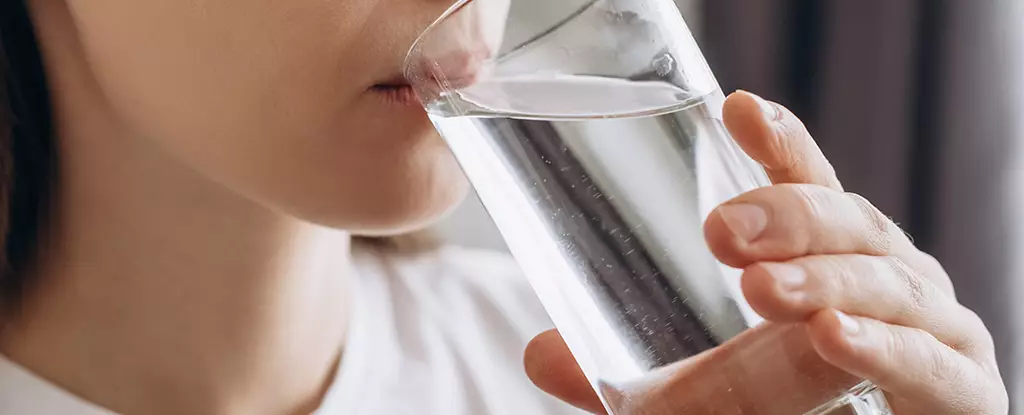The presence of microplastics in our drinking water is a growing concern. Tiny fragments of plastic are finding their way into our bodies, mainly through the food and beverages we consume. Researchers have discovered a simple yet effective method of removing these microplastics from water, offering a potential solution to this pressing issue.
A team of scientists from Guangzhou Medical University and Jinan University in China conducted experiments to assess the effectiveness of a boiling water strategy in removing nanoplastics and microplastics from drinking water. By adding these particles to both soft water and hard tap water, and then boiling and filtering the liquid, the researchers were able to remove up to 90% of the microplastics in some cases. The success rate varied depending on the type of water used, with hard tap water showing greater removal efficiency due to the presence of calcium carbonate build-up.
One of the key advantages of this method is its simplicity and accessibility. Most people can perform this process using common kitchen equipment, such as a stove and a filter. The researchers suggest that boiling water can effectively “decontaminate” NMPs from household tap water, potentially reducing human exposure to microplastics through drinking water. Additionally, the use of a simple filter, like a stainless steel mesh, can further enhance the removal of any remaining plastic fragments.
Studies have shown that microplastics, such as polystyrene, polyethylene, and polypropylene, are present in potable tap water and are being consumed by people on a daily basis. While the exact health effects of ingesting these particles are still unclear, there is evidence linking plastics to changes in the gut microbiome and antibiotic resistance in the body. The researchers suggest that drinking boiled water could be a long-term strategy to reduce global exposure to microplastics, emphasizing the need for further research in this area.
The research team hopes that drinking boiled water will become a more widespread practice as the prevalence of plastics continues to rise. By exploring the potential of boiled water in keeping artificial materials out of the body, there is a possibility of mitigating the negative effects associated with microplastics. The researchers emphasize the importance of conducting more extensive studies with a larger number of samples to validate the effectiveness of this strategy in reducing human exposure to microplastics.
The impact of microplastics on drinking water is a complex issue that requires immediate attention. While the boiling water method shows promise in removing these harmful particles, more research is needed to fully understand the implications of microplastic contamination on human health. By adopting simple yet effective strategies like drinking boiled water, we can take proactive steps towards minimizing our exposure to microplastics and safeguarding our well-being in the long run.


Leave a Reply